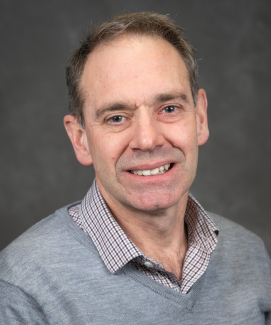
Craig S. Atwood, PhD
Craig S. Atwood, PhD

PhD, University of Western Australia in Perth, Australia
Postdoctoral training, reproductive endocrinology, NIH
Postdoctoral training, neuroscience, Massachusetts General Hospital
Dr. Atwood is a professor in the UW Division of Geriatrics and Gerontology and a Health Science Specialist at the Madison VA GRECC. He is Leader of the Molecular Sciences and Biomarker Service of the Wisconsin ADRC. He has held faculty appointments at Harvard Medical School, Case Western Reserve University, and UW-Madison. Dr. Atwood is a widely-acknowledged authority regarding the neuroendocrinology of aging and Alzheimer's disease. The research in his laboratory is based on a novel theory of aging (Reproductive-Cell Cycle Theory of Aging) that links reproductive hormone signaling to cell cycle dynamics that regulate our growth and development early in life, our reproductive function during adult life, and our senescent phenotype in late adult life. In essence, the theory explains why and how we age at the molecular, physiological and evolutionary levels. The current focus of research in his laboratory relates to the development and clinical testing of drugs and biologics for restoring hormone balance so as to halt the aging process, and mitigate the development of a range of age-related diseases. He has published several seminal papers concerning the pathobiology of aging and AD, and has received substantial research funding from the NIH, the VA, the Alzheimer's Association, and the pharmaceutical industry. He has published over 200 scientific articles, is an inventor on eight issued U.S. patents, is a top cited author (h-index = 49), has served on numerous review boards, and is an editor of more than 50 scientific journals.
Dr. Atwood has broad research interests related to the endocrinology of embryogenesis, adulthood and senescence as elaborated upon in “The Reproductive-Cell Cycle Theory of Aging.” The current focus of research in his laboratory relates to basic and clinical investigations into developing strategies to restore hormonal balance so as to halt the aging process and mitigate the development of age-related diseases such as AD.



